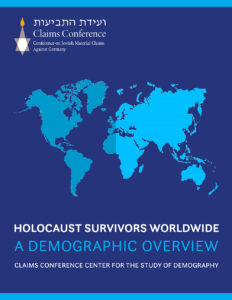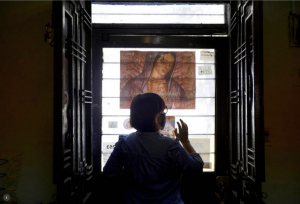The TRC held some of its first public events, which focused on collecting data and community input on racial justice issues.
Public fact-finding and truth-telling events held between March 14 and March 21 indicate progress for the Ad Hoc Truth and Reconciliation Commission, commissioners said.
The Iowa City City Council voted to create the TRC in September 2020 with “the purpose of bearing witness to racial justice in Iowa City and carrying out restorative justice.” The commission will reconvene in April and present their recommendations in May, but a specific date has not been decided.
The commission encountered several challenges in its first few years. Early efforts for progress were impeded by leadership transitions, including the resignation of the original chair, Royceann Porter, following allegations of misconduct which resulted in a temporary suspension of the TRC by the city council.
Instability in its leadership continued to cause controversy when the second chair, Mohamed Traore, stepped down after 16 months and the third chair, Amel Ali, resigned after making offensive comments about Porter on a local podcast.
The TRC also navigated early friction with the Iowa City City Council. Commissioners expressed a lack of support and structure and disagreements over funding needs caused Mayor Bruce Teague to suggest dismantling the commission altogether.
Current TRC chairperson Chastity Dillard said significant progress has been made since then.
“All partnerships are a learning process,” Dillard said. “I am happy with where we are now.”
In May 2023, the city council approved $400,000 of funding for the TRC to hire additional consultants and conduct internal training.
“When we were awarded dollars to pursue facilitation, as was requested by our city council, we were able to learn from experts — worldwide experts and local leaders — to educate us as a commission and teach us how to be able to do this on our own,” Dillard said.
The funding was also allocated to the TRC’s recent fact-finding and truth-telling events, which included facilitators, Mobile Crisis Outreach counselors, Native American community partners, a shared community meal, and child care and transportation assistance. These events were the first public events held by the TRC which, Dillard said, represent only “the tip of the iceberg” of the TRC’s work.
Kearns & West, a consulting firm hired by the TRC, has spent the past few months gathering local data on racial injustice in law enforcement, the legal system, and public safety. Their findings were presented at the first event held at Iowa City City Hall by Larry Schooler and Laurel Cohen. The second event, held at the Wright House of Fashion, provided a space for the commission and community members to reflect on the data presented.
“It was very helpful to have experts with the knowledge of how to dissect different data sources and find the information and stories, both told and untold, to help us understand what is going on in the Iowa City area and what we need to do to move forward,” Dillard said.
The last two events, held at ICOR Boxing and the James Theater, were devoted to truth-telling and were open to community members and commissioners to share their experiences with systemic injustice.
“I thought these events were very positive, they were meant to bring people together for the first time for something unprecedented that hasn’t been done before,” Commissioner Clifton Johnson said.
Commissioners recognized they are in uncharted territory as one of a small number of similar commissions nationwide.
“The issues that we’re trying to confront are things that should have been confronted decades ago,” Commissioner Louis Tassinary said. “Everybody is committed to trying to do this in the best way we can.”
A conflict emerged between Commissioner Chad Simmons and ThinkPeacefacilitator David Ragland during the second truth-telling event on March 21. Simmons said this conflict did not deter from the overall progress of the events and was an inevitable part of the emotionally charged and “innovative work” of the commission.
“There’s a lot of passion behind this work, and I have the utmost respect for him [Ragland] and what he has done,” Simmons said. “There was simply a disagreement.”
ThinkPeace declined an interview with The Daily Iowan.
The conflict also served as an opportunity for the commission to practice reconciliation through the group’s Native healing partners who facilitate healing circles after meetings due to the emotional nature of truth-telling.
RELATED: IC Truth and Reconciliation Commission event derails into conflict
“I think that one of the beautiful things that was able to occur was that when that harm happened, we were actually able to respond in real-time,” Johnson County Supervisor V Fixmer-Oraiz, who works with the TRC as a community facilitator, said. “I’ve had several people reach out to me afterward about how impactful that experience was.”
The next step for the commission is to assess the information gathered through these events and make recommendations to the city council, Dillard said.
Dillard said she also hopes these recent public events will be the first of several before the commission is scheduled to complete on Dec. 31, 2024.
“While some people in this community might not see any issues, they are happening,” Dillard said, referring to systemic racism. “We want to work together to figure out how to move forward as we progress in the Iowa City area.




